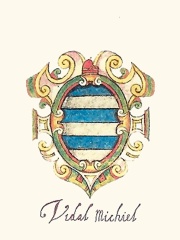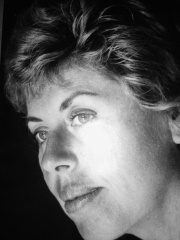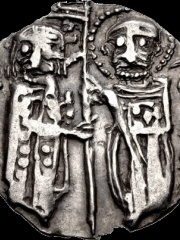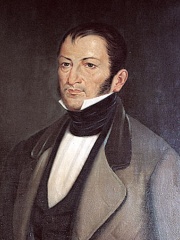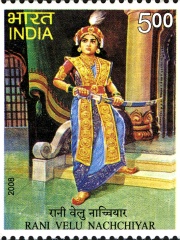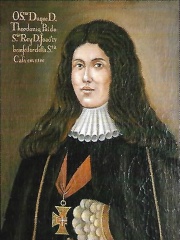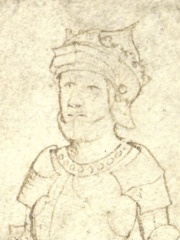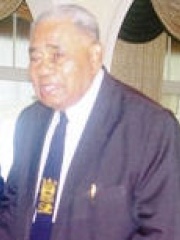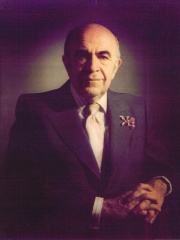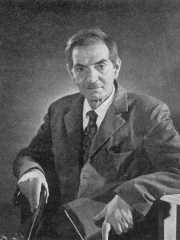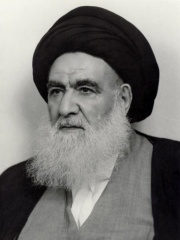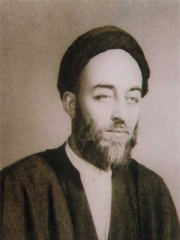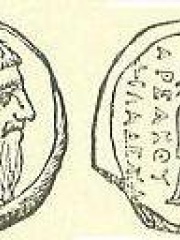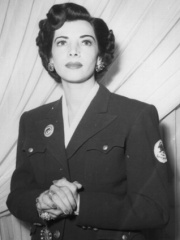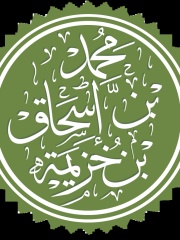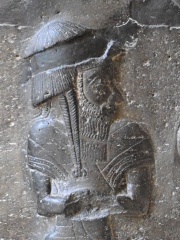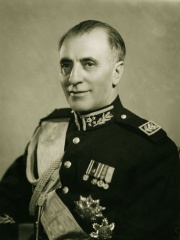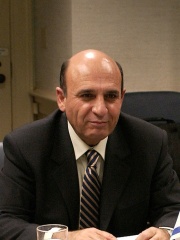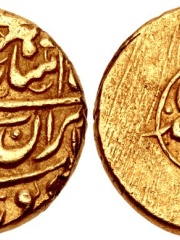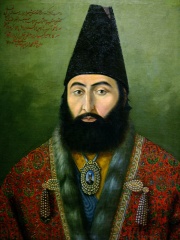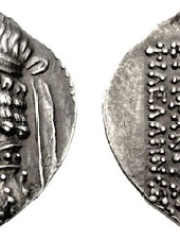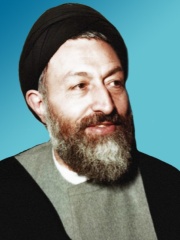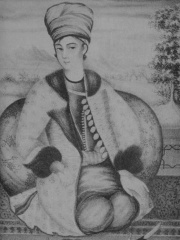Politician
Shapur IV
EN.WIKIPEDIA PAGE VIEWS (PV)
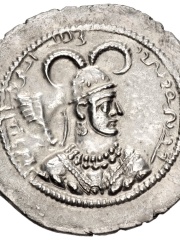
 Shapur IV
Shapur IV
His biography is available in 21 different languages on Wikipedia (up from 19 in 2024). Shapur IV is the 9,311th most popular politician (up from 12,868th in 2024), the 238th most popular biography from Iran (up from 351st in 2019) and the 127th most popular Iranian Politician.
Memorability Metrics
Page views of Shapur IV by language
Among Politicians
Among politicians, Shapur IV ranks 9,311 out of 19,576. Before him are Vitale II Michiel, Shulamit Aloni, William II, Duke of Apulia, George II of Bulgaria, Nicolás Bravo, and Velu Nachiyar. After him are Teodósio II, Duke of Braganza, Rosen Plevneliev, Edward Plantagenet, 17th Earl of Warwick, Nan Geng, Josefa Iloilo, and Anna Vasa of Sweden.
Most Popular Politicians in Wikipedia
Go to all RankingsVitale II Michiel
1150 - 1172
HPI: 61.99
Rank: 9,310
Shulamit Aloni
1928 - 2014
HPI: 61.98
Rank: 9,311
William II, Duke of Apulia
1095 - 1127
HPI: 61.98
Rank: 9,312
George II of Bulgaria
1300 - 1323
HPI: 61.98
Rank: 9,313
Nicolás Bravo
1786 - 1854
HPI: 61.98
Rank: 9,314
Velu Nachiyar
1730 - 1796
HPI: 61.98
Rank: 9,315
Shapur IV
HPI: 61.98
Rank: 9,316
Teodósio II, Duke of Braganza
1568 - 1630
HPI: 61.98
Rank: 9,317
Rosen Plevneliev
1964 - Present
HPI: 61.97
Rank: 9,318
Edward Plantagenet, 17th Earl of Warwick
1475 - 1499
HPI: 61.97
Rank: 9,319
Nan Geng
1500 BC - 1409 BC
HPI: 61.97
Rank: 9,320
Josefa Iloilo
1920 - 2011
HPI: 61.97
Rank: 9,321
Anna Vasa of Sweden
1568 - 1625
HPI: 61.97
Rank: 9,322
In Iran
Among people born in Iran, Shapur IV ranks 238 out of NaN. Before him are Ibn al-Faqih (null), Amir-Abbas Hoveyda (1919), Masawaiyh (777), Mohammad-Hossein Shahriar (1906), Asadi Tusi (999), and Abu al-Qasim al-Khoei (1899). After him are Muhammad Husayn Tabatabai (1892), Phraates I (-190), Shams Pahlavi (1917), Al-Sarakhsi (1009), Ibn Khuzayma (838), and Maryam Mirzakhani (1977).
Others born in Iran
Go to all RankingsIbn al-Faqih
HISTORIAN
HPI: 62.50
Rank: 232
Amir-Abbas Hoveyda
POLITICIAN
1919 - 1979
HPI: 62.45
Rank: 233
Masawaiyh
PHYSICIAN
777 - 857
HPI: 62.29
Rank: 234
Mohammad-Hossein Shahriar
WRITER
1906 - 1988
HPI: 62.21
Rank: 235
Asadi Tusi
WRITER
999 - 1072
HPI: 62.12
Rank: 236
Abu al-Qasim al-Khoei
SOCIAL ACTIVIST
1899 - 1992
HPI: 61.98
Rank: 237
Shapur IV
POLITICIAN
HPI: 61.98
Rank: 238
Muhammad Husayn Tabatabai
PHILOSOPHER
1892 - 1981
HPI: 61.88
Rank: 239
Phraates I
POLITICIAN
190 BC - 171 BC
HPI: 61.86
Rank: 240
Shams Pahlavi
POLITICIAN
1917 - 1996
HPI: 61.85
Rank: 241
Al-Sarakhsi
LAWYER
1009 - 1090
HPI: 61.84
Rank: 242
Ibn Khuzayma
RELIGIOUS FIGURE
838 - 924
HPI: 61.83
Rank: 243
Maryam Mirzakhani
MATHEMATICIAN
1977 - 2017
HPI: 61.82
Rank: 244
Among Politicians In Iran
Among politicians born in Iran, Shapur IV ranks 127. Before him are Shutruk-Nakhunte (-1300), Fazlollah Zahedi (1897), Shaul Mofaz (1948), Shahrokh Shah (1734), Amir Kabir (1807), and Amir-Abbas Hoveyda (1919). After him are Phraates I (-190), Shams Pahlavi (1917), Orodes I of Parthia (-190), Mohammad Beheshti (1928), Lotf Ali Khan (1769), and Farahnaz Pahlavi (1963).
Shutruk-Nakhunte
1300 BC - 1155 BC
HPI: 63.00
Rank: 121
Fazlollah Zahedi
1897 - 1963
HPI: 62.98
Rank: 122
Shaul Mofaz
1948 - Present
HPI: 62.87
Rank: 123
Shahrokh Shah
1734 - 1796
HPI: 62.62
Rank: 124
Amir Kabir
1807 - 1852
HPI: 62.51
Rank: 125
Amir-Abbas Hoveyda
1919 - 1979
HPI: 62.45
Rank: 126
Shapur IV
HPI: 61.98
Rank: 127
Phraates I
190 BC - 171 BC
HPI: 61.86
Rank: 128
Shams Pahlavi
1917 - 1996
HPI: 61.85
Rank: 129
Orodes I of Parthia
190 BC - 90 BC
HPI: 61.78
Rank: 130
Mohammad Beheshti
1928 - 1981
HPI: 61.65
Rank: 131
Lotf Ali Khan
1769 - 1794
HPI: 61.50
Rank: 132
Farahnaz Pahlavi
1963 - Present
HPI: 61.20
Rank: 133
